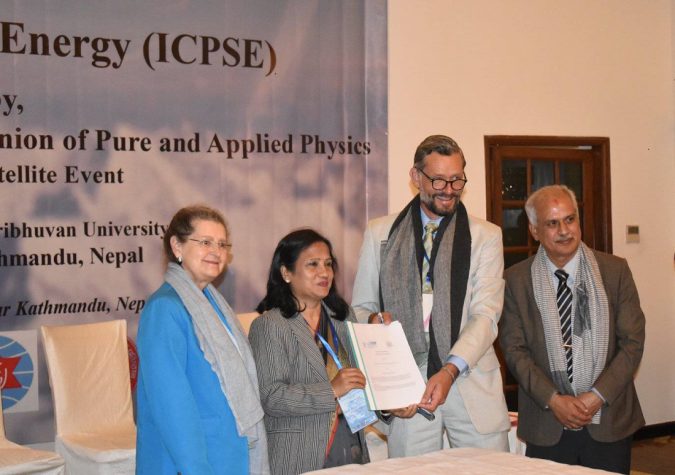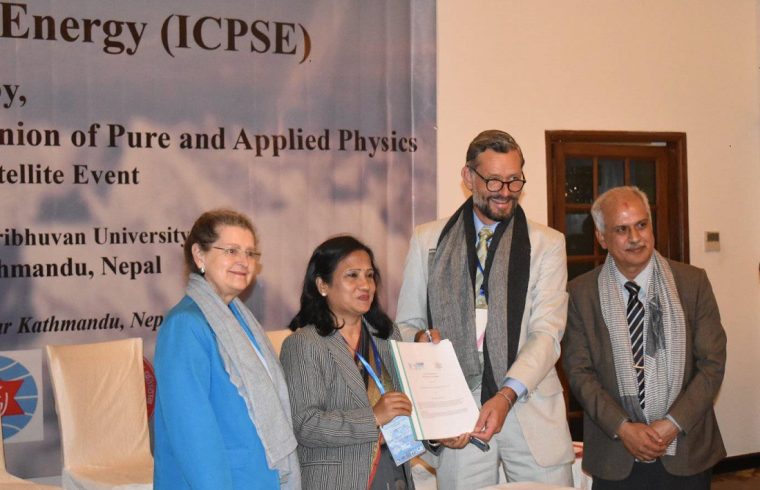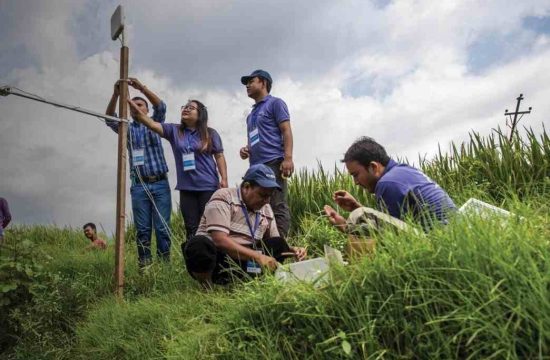
Kathmandu— The International Union of Pure and Applied Physics (IUPAP) and the Nepal Physical Society (NPS) have signed a memorandum of understanding (MOU) today. The two parties sign the agreement during a two-day ‘International Conference on Physics for Sustainable Energy’ that NPS is hosting at the Hotel Himalaya in Lalitpur.
Prof. Dr. Shivlal Bhusal, rector of Tribhuvan University, while inaugurating the conference, said, “Nepali scientists will get opportunities for further study and research through the collaboration between NPS and IUPAP.” Similarly, he suggested that Nepali scientists should make use of the opportunity to connect directly with foreign scientists through the conference.
After this agreement, NPS became the first Associate Territorial Member of IUPAP, General Secretary for Administration and Finance Jens Vigen said. There are 60 members in IUPAP so far.
According to him, IUPAP has been working on missions such as assisting in the global development of physics, increasing international cooperation in physics, and helping in the use of physics to solve human problems.
Prof. Dr. Michel Spiro, president of IUPAP, who joined the program through video conference, said, “A common goal has been set for the development of physics in Nepal, IUPAP will be with us for that goal.” “There will be cooperation in intellectual fields including research and conferences,” he said.
Prof. Dr. Neelam Shrestha Pradhan, president of NPS mentioned that IUPAP provided associate members after discussions and common programs were decided at various stages in the past meetings. “We have to pay two thousand Euros per year for membership, but there is no way to pay the membership fee,” she said. “Membership fee has been waived for one year.”
Likewise, the ‘International Conference on Physics for Sustainable Energy’, which will last for two days from today, has been organized in collaboration with IUPAP. President Shrestha said, “Physicists of Nepal will focus on what kind of research can be done to solve the problems of the energy sector.”
According to her, the subjects of physics and energy are not seen together in Nepal, so the subjects presented at the conference will be easy to understand in a scientific way of the research and development done in other countries in the world. “NPS will initiate research focused on the experience of foreign experts, and the goal of sustainable energy that can be done in Nepal,” she added.
Dr. Carolina Vera, vice-president of the Intergovernmental Panel on Climate Change (IPCC) gave an oral presentation as the keynote speaker at the conference on the title ‘The Physical Science Basis of Climate Change’. “The IPCC report has made it clear that the atmosphere, oceans and land are warming due to the increase in temperature, including fuel and household appliances used by people, and increasing industrialization,” she said.
There have been extensive and rapid changes in the atmosphere, oceans, cryosphere and biosphere. For this reason, she requested to focus on the role that physical science can play in the fields of electric energy, solar energy and photovoltaic cells that will be used in the future while accepting the negative results of the energy of human activities in climate change.









